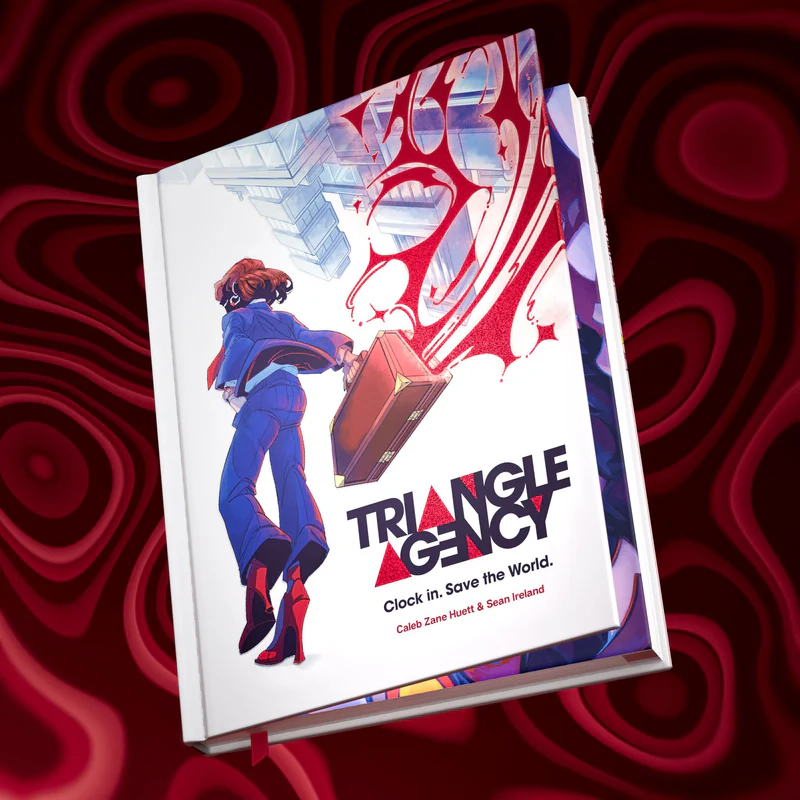Triangle Agency Again
quinns reviewed a cosmic horror corporate RPG

So, months ago I discovered Triangle Agency. (Link to the previous article where I talked about it a bunch.)
Lo, months later and Quinns has reviewed Triangle Agency.
Here are some of his thoughts, in short:
- This game is hilarious. It is actively very funny to play and read.
- Because the game’s book is an in-universe tome, it often sacrifices clarity or practicality as a reference text for voice.
- It is an enormous amount of work to DM. Giving everyone demigod-like powers while also trying to keep an investigation on the rails (“whoops, you vanished an important clue”) while also keeping track of each players’ 3 Relationships (played by other people at the table) while also keeping track of Commendations and Demerits, while also having the antagonist’s actions hammered into a little box by Chaos Points and The Spending of Chaos Points On One of Twelve Different Anomalous Things The Baddie Can Do… well it’s all a lot for one person to keep track of.
- The starting kit afforded to players is enormously powerful and flexible and complicated, which means that by the time they start accruing Legacy Stuff they’re already a little overwhelmed, and then there’s so much Legacy stuff.
- A big part of the role of a DM is helping your players navigate the rules, and this is made more complicated by each player operating by a different subset of rules, and these rules are private to that player, rather than public table information.
- If you’re playing strictly according to the rules, even the GM is not supposed to have seen the playwalled content, although having personally perused the stuff the GM is not supposed to see I have no idea how a GM is supposed to run a game where the players’ have all of these - often confusingly written - rules to themselves. A simple private misunderstanding could badly derail this game.
- At some point Quinns’ players just stopped paying attention to new skills and abilities (keep in mind: the starting kit is So Powerful) meaning that nobody understood the Playwalled content, because the players didn’t read it and Quinns hadn’t seen it.
- Quinns recommends this game either for
- Your most autistic (sidenote: my choice of words, not his) , a team of savants able to execute and enjoy this games’ massive amount of procedural gubbins.
- People who don’t care too much about playing exactly or even approximately by the rules and just enjoy the ability to warp reality around them with high-octane nonsense.
That’s not exactly a sparkling review, but it’s definitely interesting.